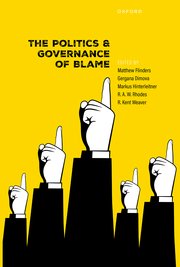Varieties of European Blame Games: On Scapegoat, Renegade, and Diffusion Games
by Tim Heinkelmann-Wild, Berthold Rittberger, Bernhard Zangl, and Lisa Kriegmair
 In the European Union (EU), blame games have become a regular feature of EU politics. A fast-growing literature studies political actors’ blame avoidance and blame generation strategies in the EU. Thanks to this literature, we possess ample knowledge about the strategies political actors employ when playing European blame games.
In the European Union (EU), blame games have become a regular feature of EU politics. A fast-growing literature studies political actors’ blame avoidance and blame generation strategies in the EU. Thanks to this literature, we possess ample knowledge about the strategies political actors employ when playing European blame games.
We introduce a new perspective to the study of blame games in the EU. Rather than focusing on actors’ strategies, it zooms in on blame attributions – and the resulting blame games – that resonate in the European public. After all, the blame attributions that ‘stick’ in the European public affect who is held accountable for EU policy failures.
Which kind of blame games emerge from blame attribution patterns in the EU? The literature generally implies that the cacophony of political actors’ blame strategies leads to the diffusion of blame across the numerous actors involved in EU policymaking. We argue that such diffusion games, where no specific actor emerges as a dominant target of blame attributions, are not the only game in town and introduce two additional European blame games: scapegoat games, where EU bodies, such as the Commission, are the main target of public blame attributions; and renegade games, where individual EU member states are the predominant target.

